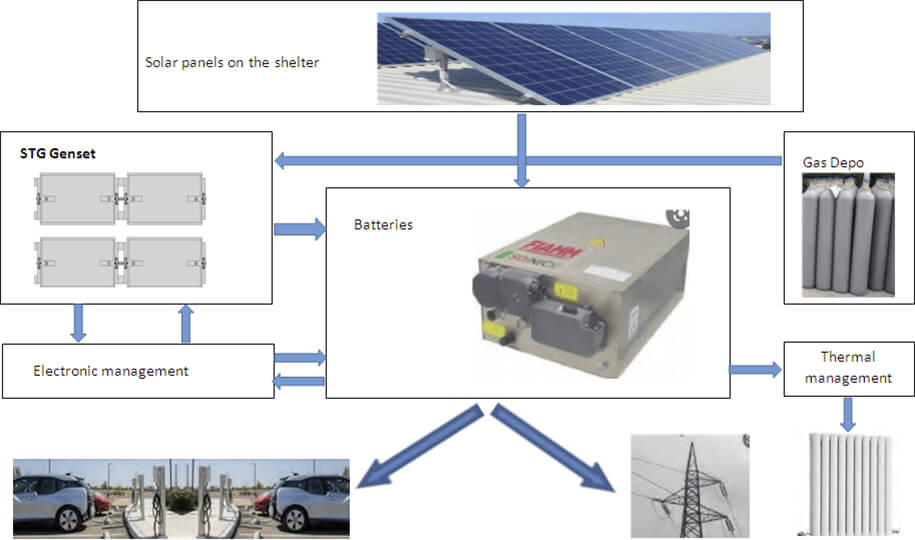Charging Stations 2025
The Innovation of Charging Stations for Electric Vehicles in 2025: A Technological and Sustainable Vision
The transition toward a future of electric mobility is a central goal of sustainability policies. However, this evolution poses significant challenges for the electricity supply system, especially during winter months.
In Switzerland, the Confederation has already expressed concerns regarding potential energy shortages, as highlighted in a report published in October 2021. Consequently, various initiatives and solutions are being studied to mitigate risks and ensure a smooth transition.
For instance, the energy sector association Powerloop is considering a project to prevent energy shortages: the creation of a network of around two thousand small gas-fueled power plants across Switzerland. Implementing this project would require an investment of 3.4 billion Swiss francs. In contrast, a blackout could cost between 3 and 4 billion francs per day.
Source: tio.ch, 17.10.21 by Patrick Stopper
The STG Charging Station Project
An innovative proposal involves developing charging stations for electric vehicles based on a decentralized production and storage system. These stations, named STG (Green Technological Stations, in Italian Stazioni Tecnologiche Green), emphasize their ecological mission while minding the company name. They represent an advanced approach to tackling energy challenges and stabilizing the national electrical grid.
Key Features
1. Energy Independence:
STG stations can operate independently of the main power grid thanks to modular energy storage systems and the use of biomethane or hydrogen as primary sources, preferably produced in a circular economy. This ensures a constant and reliable supply, even during peak times.
2. Environmental Sustainability:
Each station is equipped with photovoltaic panels to power internal services and heat pumps for thermal recovery. Moreover, the green energy produced can be used not only to charge vehicles but also to produce hydrogen, expanding the offering for hydrogen-powered vehicles.
3. Technological Efficiency:
At the heart of the STG stations are one or more generators powered by biogas or hydrogen with efficiency exceeding 50%, significantly reducing the cost per kWh. These generators operate at a constant rate, ensuring optimal functioning and longer lifespan. Having multiple generators installed allows for uninterrupted energy production in case of malfunctions.
4. Modularity and Scalability:
Each station can accommodate 4 to 10 charging columns, with the potential for expansion. Storage systems, such as salt batteries or others, are designed to minimize environmental impact and facilitate recycling.

Photo source: Automobil + Motoren Newsletter | Springer Professional newsletter@emailing.springerprofessional.de
Strategic Advantages
STG stations not only support the transition to electric mobility but also act as stabilization nodes for the electrical grid. Through connection to the main grid, these facilities can store excess energy and release it during demand peaks, helping prevent blackouts and improving overall system efficiency.
Additionally, the compact and modular design of the stations, based on easily installable containers, makes them adaptable to various urban and rural contexts. This approach provides a flexible response to the rapidly increasing demand for charging infrastructure while supporting emission reduction goals.
A Vision for the Future
Switzerland currently has approximately 3,500 traditional service stations, which are set to be progressively replaced by electric or hydrogen charging stations. The STG project fits perfectly into this changing landscape, offering an ecological and highly efficient alternative to meet the growing energy demand for sustainable mobility.
With targeted investments and widespread implementation, these stations can transform the energy and mobility landscape, solidifying Switzerland’s role as a leader in sustainable innovation.
STG Concept


